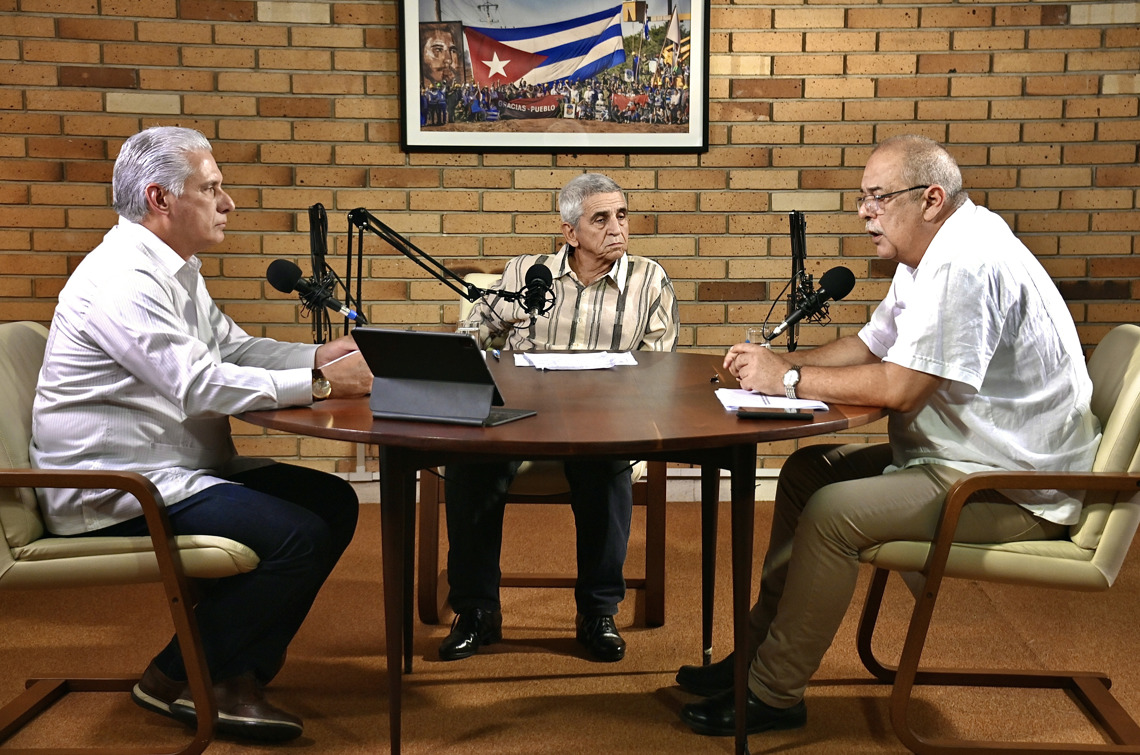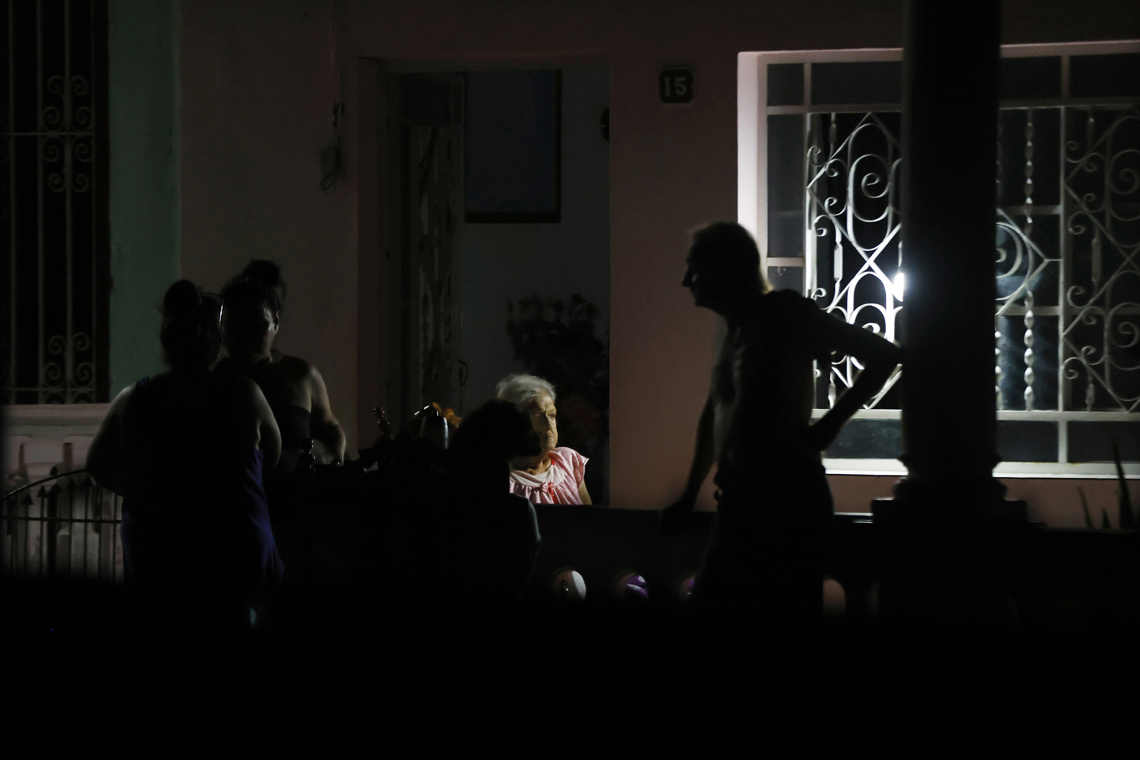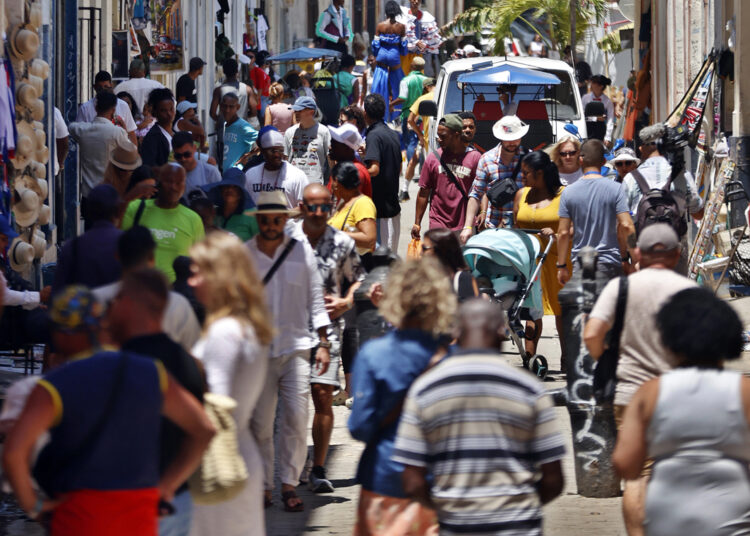Some good news is urgently needed! At the risk of reiterating ideas, I return to the topic, given the complexity of the scenario and the data that describe it; the bad news piling up one on top of the other, and the tension added by the “new provisions.” All of this requires increasingly stronger knocks.
The ETECSA “rate increase” is a political blunder (yet another) in every respect due, among other things, to:
- the flawed political communication strategy, bad news at the height of the energy crisis, deaf ears to people’s anguish, lack of dialogue for decision-making;
- the direct impact on the deteriorating well-being of an exhausted population, especially the least fortunate;
- the absence of structural decisions, not allowing public enterprises to operate as businesses; once again, burdening the crisis on meager remittances;
- the piecemeal expansion of the dollarization process, without a comprehensive plan, and without any relief for people living in extreme poverty.
I heard a “drunk” man, some time ago, say at the top of his lungs: “The problem is that they changed everything that shouldn’t have been changed.” Popular wisdom at its best.
That man, whose origin, name, or torment I don’t know, showed, with his extra drinks, that he had his feet firmly on the land of his time and his history. That “drunk” man made me think about what needs to be changed, now that so much has changed.
More recently, and with varying formulations and tones, I hear people’s clamor for some good news, some announcement that things might get better, some news that doesn’t generate anxiety, some measure that “gives us a little respite,” a glimmer of light that puts an end to the island’s polysemic darkness, some sign that so much “endurance” is not in vain.
In September 2019, to put it more recently in time and in reality, the current Cuban ordeal began. What then seemed like a “situation” (at least that’s how it was officially said) has become an almost permanent state.
For a little over five years, we witnessed the establishment, at the end of 2019, of stores that accept freely convertible currencies (MLC), considered by their promoters to be “the most practical mechanism” for attracting foreign currency and reviving the economy.
January 2020 opened the floodgates to the “monetary and exchange rate reorganization” process, which sought a single, strengthened (national) currency.
In April 2021, a package of 63 measures was announced to “stimulate food production in the nation.” These years also include the growth of private enterprises and their regulatory ups and downs, the constant adjustments in the retail distribution system (regulated and liberalized/adjusted), leading to greater shortages, the large foreign investment portfolio that has not materialized, and the disproportionate hotel and real estate investment (luxury facilities amid urban deterioration), among others.
The truth is that these decisions, these organizational, economic and financial shifts have not yielded good news.
It was no coincidence that 2025 brought a new “program to correct distortions and boost the economy.” Beyond the partial dollarization of production, distribution, and consumption, there is no public information about its contents and scope, which suggests that we are witnessing more of the same (old methods exacerbating the same problems).
It doesn’t take much effort to notice the sustained increase in shortages; the rampant inequality; widespread hopelessness; the daily pressure, increasingly violent; the feeling of abandonment, the rise in drug use among its symptoms; mediocrity gaining ground over creativity; hatred growing louder; rights under strain; and the almost pathological absence of good omens.
Cuba’s “polycrisis” is widening inequality gaps, sociologists warn
It’s impossible for a country to move forward without good news that turns on all kinds of lights, no matter how small, from electricity to a sense of well-being. Those that, in essence, make us believe it’s possible to get out of the quagmire.
Good news is a political resource to make the country more governable and enjoyable, as well as to foster a path of full material and spiritual development.
This isn’t about grandiloquent expressions, dilemmas far removed from everyday life, stories without a present or future, or simple political interplays. It’s about believing that there is a strategy — one that includes all of us — organized, thought out, systematic, verified in decisions, and defined in actions. A strategy that, in essence, guides a project for a just, sovereign, and dignified nation.
Good news, for example, that involves publicly accounting for the things that weren’t done or for those that were done poorly; for the projects that are talked about but have no results; as well as for the unavoidable postponements (enterprise law, association law, for example).
It would be good news to be willing to inform the people what has happened to the people who, while holding public office, “made mistakes,” what those mistakes were, and how the people can ensure that future “mistakes” don’t go unnoticed.

Include among the good news the possibility of sanctioning officials at any level who create and impose absurd regulations that complicate what is already complex. Regulations that, in their rigidity, reveal a marked disinterest (or contempt?) for the well-being of the people, even if it is minimal, but a benefit nonetheless.
It will also be good to know that opulence and waste, especially at public events, are considered an affront to the people, and that, on the contrary, austerity by officials at all levels would be a way to make the crisis more bearable.
State media — if only they were public — would play a significant role in creating the good news we need when, for example, they allow for a broad debate on alternatives, visions, and proposals for overcoming the crisis. When, in addition, journalists ask uncomfortable questions of officials who, as a rule, only report what “should” be reported.
A parliament that resembles the diversity we represent as social subjects and currents of thought, as well as parliamentarians who demand true accountability, not a pile of justifications, from all the ministries, commissions, committees, agencies, and organizations that must ensure the well-being of the population, would be one of the best pieces of news we could receive.
Good news would be to ensure that protest is not a crime, that demanding accountability and solutions is understood as a right, that choosing what to do and what not to do is a sign of good health for the democratic character of the nation in general and the most disadvantaged in particular. It would also be good to know that dialogue is gaining ground over disqualification, suspicion, and censorship.
Viable political programs are those that solve everyday problems while promoting structural changes that make the solutions sustainable. Let’s hope that concrete solutions and structural changes will come hand in hand to announce and sustain the good news that Cuba needs.
Mark your news agenda as we await a stable electricity supply for all territories, decent access to food, the recognition and solution to poverty, the revitalization of public transportation, the sustainable improvement of free and public healthcare and education services, and the limit to both state (civilian or military) and private business monopolies.

Better news could come with the creation of more assemblies, councils, associations, community spaces, unions, etc., that enable the direct and broad participation of the working class and citizens in the search for solutions.
Let’s make possible, as a country, that the perversity of the United States government is not greater than our capacity to rebuild ourselves as a nation that sustains itself, materially and spiritually. This would mean having done our part to be efficient in producing the good news that guarantees the country we want.










